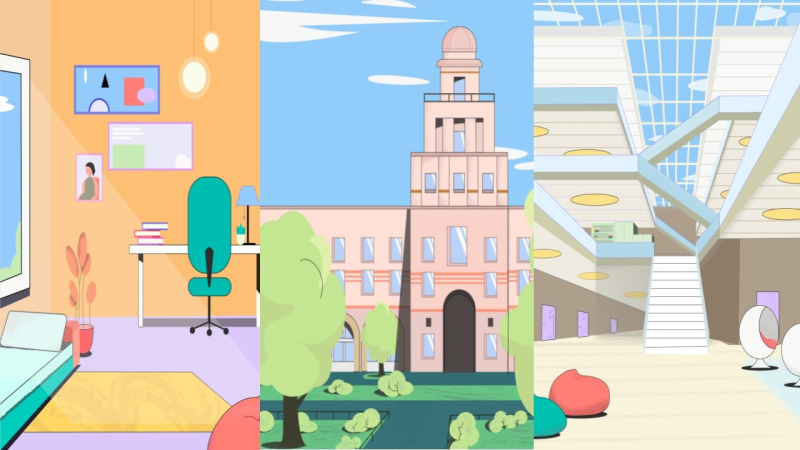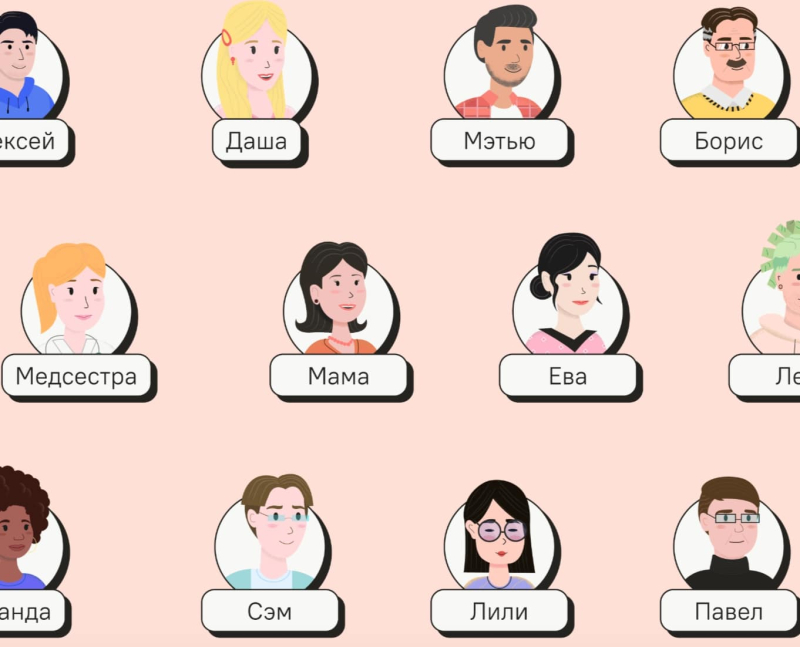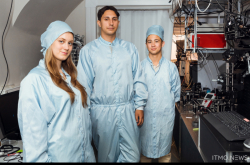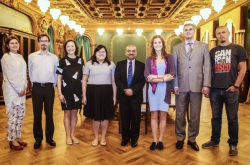Level 1. The idea
Late 2023 was the period of yet another boom of online education in Russia. According to a survey by Tinkoff Credit Broker, the majority of Russians (72%) who got any kind of additional education in the past few years chose to do it online. However, not everyone completes their chosen course: another study demonstrates that only 59% of students get to the end of their programs. Among the reasons are a low engagement rate, a general oversaturation with information and its mundane presentation, as well as a lack of immediate understanding of where the new knowledge can be applied.
In the development of IdenTrack, ITMO experts tried to account for all of these factors. With IdenTrack, students can study various subjects and complete captivating gamified tasks, living through dialogs on a particular scenario. For instance, students are asked to prepare for a scientific conference, collaborate with their supervisor on a piece of research, or learn the fundamentals of business communication. These dialogs aren’t linear, meaning that students can choose different learning tracks for every lesson, as well as return to turning points to work through alternative storylines.
“Every player creates an avatar, chooses their name and appearance, learns the rules, and then is admitted to the game map. At first, the majority of the game’s levels are unavailable, but as players progress through the game, they open up new areas of the map. It will look different for every student depending on the choices they make along the way. The learning process includes photos, videos, links, dialogs, theoretical tasks, and even a messenger feature. Information is portioned out and immediately tested in practice. All players also get a mentor, who can help with topics within their competencies that are indicated by a system of hashtags,” explains Sofia Vershinina, the project’s manager and a manager at the Internationalization Department.

Locations in the game. Credit: IdenTrack
With this approach, students can see the consequences of their decisions and identify opportunities for growth and development. Among the platform’s other benefits is the typical flexibility of online courses that can be accessed at any time from anywhere. However, the platform can only be accessed via a web app on a laptop or PC – in order to make the learning process more mindful.
“There is always a chance that someone leaks the answers or makes a bot to quickly pass the course. Here, we brought such risks down to the minimum. The course can’t be completed in a night. If a player doesn’t have enough energy or credits, they won’t be able to move further along the story. This also teaches our students that complex tasks can’t be finished in just a few hours,” adds Natalia Ten, the head of the project, the deputy head of the Internationalization Department.
Level 2. Development
It so happened that the platform was developed by its target audience – it’s authored by ITMO students. Thanks to this, it was possible to account for the negative experiences of students when taking popular online courses. Additionally, the development team consulted storytellers and soft skills lecturers at ITMO.
At the moment, the platform can boast ten educational games, all of them part of the major project Life in Science, where students learn to conduct research at their faculties, prepare for thesis defense, write scientific papers in English and Russian, improve their productivity and emotional intelligence, present ideas, and commercialize their solutions.
Upon the initial launch of the game, its users shared that they’d love to see similar content on other subjects. This led to new courses for various educational programs being created in collaboration with ITMO’s ChemBio Cluster, Faculty of Biotechnologies, Research and Educational Center for Mathematics, Institute of Laser Technologies, Faculty of Technological Management and Innovations, Faculty of Control Systems and Robotics, and School of Physics and Engineering. The teaching staff of these departments helped prepare the materials for each respective field by outlining the skills students have to master by the end of the course, providing the necessary information, and fact-checking in-game scenarios.

Characters in the game. Credit: IdenTrack
Level 3. Testing and launch
Three years down the line, the platform has seen three launches, welcoming over 1,000 ITMO students in its courses. 87% of students successfully completed the game, finishing the offered educational program – that’s 30% more than in earlier launches, when the courses ran in a more conventional online format.
Along the way, the developers collected user feedback they could use to improve the platform. Nearly 90% of all feedback turned out to be positive.
“The negative reviews primarily focused on particular tasks – their level of difficulty or wording. When Life in Science was a conventional online course, only 54% of Master’s students passed the test during the finals. Now that we’ve turned it into a game, we regularly get over 85% of passes. Moreover, there is a lower share of those who are expelled from the course after their second attempt to pass it,” shares Sofia Vershinina.
According to students, the new format offers a high quality of information, applicability of gained knowledge and skills, as well as an unconventional approach to the educational process that motivates them to start learning.
“PhD students who completed the game told us that we provide answers to every question they tried to answer as Master’s students. Ordinarily, you learn about such things yourself by trial and error – and now you can find it all in a game. There is a combination of soft skills, structured information, and lists of specialized literature on various topics,” adds Natalia Ten.
Level 4. New heights
In the last weeks of April, the platform saw the fourth launch of Life in Science with even more opportunities for students: 150 lessons instead of 110, plus updated theory blocks and tasks. Moreover, in May, the developers are planning to add the option of downloading the final assignments marked by the lecturers so that students can continue with their work (a plan of a scientific paper or a conference report draft). This way, course participants will get to practice even more skills and use their in-game accomplishments in real life.
Everything they’ve accumulated, including the knowledge base and the technology behind educational games, the ITMO developers are ready to share with other universities, schools, and partners.
“We are considering several collaboration formats. First, if a university is interested in the content we make for our students, they can get the full product; we will select the study blocks relevant for a particular university. Second, we can create a new course from scratch based on an idea or provided learning materials,” concludes Natalia Ten.





